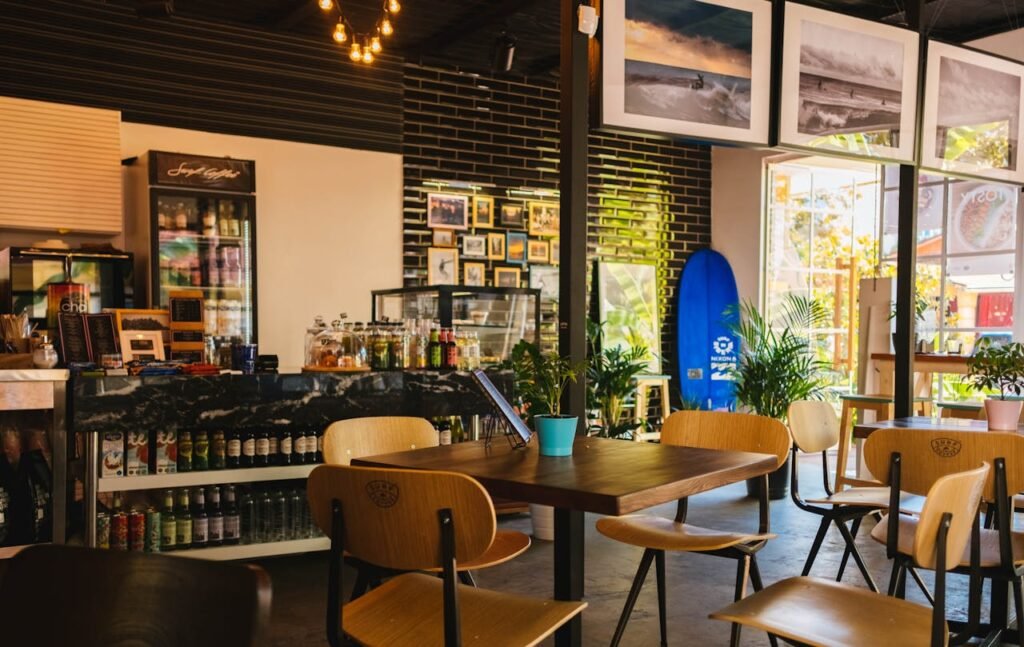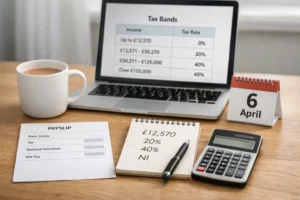Running a restaurant, Cafe, or takeaway business in the UK is no easy feat. From managing a team and dealing with customers to ensuring that the kitchen runs smoothly, the financial side of the business can often take a back seat. However, maintaining accurate financial records and understanding key financial obligations like VAT, tax rebates, and financial planning is essential for long-term success.
For many hospitality businesses, accounting may seem like a complex and daunting task, but with the right support, it can significantly improve profitability, ensure compliance with tax laws, and create opportunities for financial growth. In this article, we’ll explore how proper accountancy can benefit your restaurant, Cafe, or takeaway business in the UK and why it’s worth investing in professional accounting services.
Table of Contents
ToggleUnderstanding VAT and Its Importance for Restaurants, Cafes, and Takeaways
VAT Registration and Submission
Value Added Tax (VAT) is one of the most important taxes that UK-based food and drink businesses need to manage. If your restaurant, Cafe, or takeaway has a turnover of more than £85,000 per year (as of 2025), you are legally required to register for VAT. Even if your business’s turnover falls below this threshold, voluntary registration might be beneficial, as it allows you to reclaim VAT on purchases.
Once registered, businesses must submit VAT returns regularly, usually every quarter, to HMRC. These returns provide a summary of the VAT you’ve charged customers (output VAT) and the VAT you’ve paid on purchases (input VAT). If the output VAT is greater than the input VAT, you will need to pay the difference. However, if your input VAT exceeds your output VAT, you can claim a VAT refund.
VAT Rates and Implications for Food and Beverage Businesses
The standard VAT rate in the UK is 20%, but for the hospitality sector, things can get a little more complex. The VAT rate for food and non-alcoholic drinks served in Cafes, restaurants, and takeaways is typically 20%. However, there are exceptions, especially when it comes to hot food and takeaway items.
For instance, if food is served hot for immediate consumption (e.g., a hot sandwich or pizza), it is subject to the full 20% VAT. But if it’s cold (like a sandwich or salad served for takeaway), it may be exempt from VAT or subject to a reduced rate. Understanding these nuances and ensuring your business is applying the correct VAT rate is essential to avoid costly mistakes.
The Role of Accountants in VAT Submission and Financial Management
How Professional Accountants Can Help with VAT Submission
Managing VAT can be overwhelming for many small business owners, especially in the fast-paced hospitality sector. A professional accountant specialising in hospitality can take this burden off your shoulders by ensuring that VAT is properly calculated, submitted, and paid on time.
An experienced accountant will assist with VAT registration, help you maintain accurate records of transactions, and prepare your VAT returns in compliance with HMRC’s rules. This allows you to focus on running your business while staying confident that your VAT obligations are being met.
The Consequences of Improper or Late VAT Submissions
Failure to submit accurate VAT returns on time can result in serious consequences. HMRC may impose penalties, interest charges, and even audit your business, which can result in hefty fines and additional scrutiny. Furthermore, businesses that fail to comply with VAT regulations risk losing credibility with suppliers and customers, which can harm their reputation and profitability.
Hiring an accountant to manage your VAT obligations ensures that your business avoids costly errors and penalties. By keeping track of your VAT position throughout the year, accountants help ensure you remain compliant and reduce the risk of expensive mistakes.
Tax Rebates and Reliefs Available for the Hospitality Industry
Tax Reliefs and Rebates for Hospitality Businesses
The UK government offers a range of tax rebates and reliefs designed to support the hospitality sector. Some of the most relevant to restaurants, Cafes, and takeaway businesses include:
- Annual Investment Allowance (AIA): This allows businesses to claim tax relief on the cost of qualifying capital assets such as kitchen equipment, furniture, and other fixtures. By claiming AIA, businesses can deduct the full cost of these assets from their taxable profits.
- Small Business Rate Relief: For businesses operating from premises with a rateable value below a certain threshold, the government offers small business rate relief, which can significantly reduce your business rates.
- R&D Tax Credits: If your business has engaged in research and development, such as developing new recipes, menu items, or innovative cooking techniques, you may be eligible for R&D tax credits. These credits can offset some of your tax liability.
- Employment Allowance: Businesses can claim up to £5,000 off their National Insurance contributions each year if they are eligible. This is especially useful for restaurants, Cafes, and takeaways with a larger workforce.
Ensuring Businesses Are Claiming Full Benefits
It’s crucial that you’re claiming all available tax reliefs and rebates to reduce your tax burden. A professional accountant can help you navigate these options and ensure you’re not missing out on opportunities for savings. By carefully reviewing your expenses and financial records, accountants can identify areas where you can claim tax relief, ultimately reducing your taxable profits and increasing your bottom line.
How Accurate Financial Reporting Can Save Money
The Importance of Timely and Accurate Financial Reporting
Accurate financial reporting is vital for any business, but it’s especially crucial in the hospitality industry, where margins can be tight, and expenses can fluctuate. By maintaining up-to-date financial records, you can gain insights into your business’s performance and make informed decisions about its future.
Timely and accurate financial reporting enables you to:
- Track cash flow: Ensure you have enough liquidity to cover day-to-day operational costs and avoid financial stress.
- Monitor profitability: Identify which areas of your business are most profitable and which need improvement.
- Plan for growth: Use historical data to project future growth and make informed investments.
Without accurate reporting, you risk running into cash flow problems, failing to notice trends in your expenses, and losing track of your financial health. A qualified accountant can ensure that all of your financial data is organised, up-to-date, and ready for review when needed.
How Financial Reporting Helps with Tax Planning
Proper financial reporting also plays a significant role in tax planning. By reviewing your accounts regularly, an accountant can identify tax-saving opportunities, such as maximising deductions and claiming reliefs. This allows you to minimise your tax liabilities while ensuring that your business remains compliant with HMRC regulations.
Why You Need a Specialist Accountant for Your Hospitality Business
Expertise in the Hospitality Sector
The hospitality industry has unique financial challenges, from fluctuating customer demand to seasonal variations in revenue. An accountant with experience in the hospitality sector will be familiar with these challenges and understand the specific tax laws, VAT rules, and reporting requirements that apply to restaurants, Cafes, and takeaways.
Understanding the Fast-Paced Nature of the Industry
Working in a fast-paced environment like a restaurant or Cafe means there’s little time for bookkeeping, tax planning, or sorting out complex financial matters. A specialist accountant understands this pressure and can provide tailored solutions that work with your business schedule, ensuring that your financial management is as smooth as possible.
Conclusion
Proper accountancy, timely VAT submission, tax rebates, and effective financial planning are all essential components of a successful restaurant, Cafe, or takeaway business in the UK. By partnering with a professional accountant, you can ensure compliance, minimise tax liabilities, and unlock opportunities for financial growth.
Investing in expert financial management will not only keep you on the right side of HMRC, but it will also help you make better business decisions and plan for the future with confidence. So, if you want to streamline your finances, reduce unnecessary costs, and boost profitability, it’s time to consider the value of professional accountancy services.
If you’re ready to optimise your business’s financial health, contact Bloom Financials for expert accounting services tailored to the hospitality sector.





